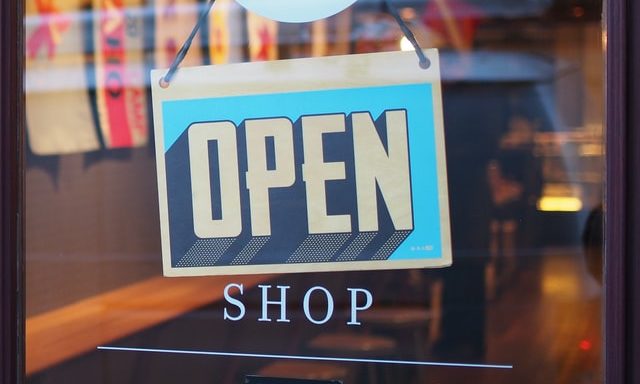What would protective shopworkers’ legislation mean?
Shop workers have experienced a sharp increase in verbal and physical abuse in recent years. Retail Sector speaks to health and safety officer Doug Russell from USDAW who explains why legal action needs to be taken to protect them

Register to get 1 free article
Reveal the article below by registering for our email newsletter.
Want unlimited access? View Plans
Already have an account? Sign in
“I’ve been sworn at, spat at and had a knife pulled on me all in the last 10 months,” says a shop worker responding to the Union of Shop, Distributive and Allied Workers (Usdaw) 2020 survey. This response is just one of many negative reports experienced by workers across the UK. Other responses include, being “physically pushed, shoved and trolley-rammed during panic buying” and “being screamed at when telling customers we don’t have an item in stock”. The union claims that since the start of the pandemic abuse amongst shop workers has increased 60%.
In response to the rise in violence, some 100 of the UK’s leading retailers wrote to the Prime Minister calling on him to support an amendment to the Police, Crime, Sentencing and Courts Bill that would tackle violence and abuse against retail workers. The bill, which had been dismissed twice before, is set to receive its third reading in parliament.
In the letter, Helen Dickinson OBE, chief executive of the British Retail Consortium (BRC), reiterated that retail workers face “violence and abuse every day just for doing their jobs…behind each of these statistics is a person, a family, colleagues and communities that have to cope with this ‘trauma’,” she noted.
The union suggests the pandemic-related changes to the shopping experience through the enforcement of social distancing rules has meant that many shops were forced to restrict the number of people allowed in the store at any one time, resulting in queues of shoppers outside needing to be managed.
Inside the store, reminding customers of the need to keep two metres apart and controlling queues at checkouts was also a potential source of conflict. Particularly in the first few months of the pandemic, as panic buying and stockpiling of essentials put pressure on supplies with empty shelves and restrictions on the amount of key products individual customers were allowed to purchase.
Rise in abuse cases

Speaking on the matter, Doug Russell, health and safety officer for the union says that the survey has been in motion since 2007, although this year was naturally different. “Because of the pandemic, we had to do it online, so the figures are not directly compatible with the figures from previous years because of the different sampling method,”, he says. Nevertheless, the union was able to get just under 3000 responses for the survey.
The union conducted a smaller survey on the impact of the pandemic back in April last year during the first lockdown, which showed “loud and clear” that there was an increased level of abuse and violence experienced by shop workers. Russell says that based on the union’s research, the violence which increased during the pandemic, was predominantly linked to the stockpiling shortage of items on the shelves which meant that staff had to limit the amount of items each customer could buy.
He says that this initially “caused some friction” and what “was most shocking” was that throughout the pandemic, the violence and abuse rapidly increased. In some instances, when customers were reminded of the social distancing rules and asked to wear a face mask, or refused entry for non-compliance, “people would spit and cough at the workers” threatening to infect them with Covid-19.
Russell says that although the violence and abuse statistics shown in previous surveys have been “inching higher and higher”, in the past five years there was a “very rapid upturn” in both verbal and physical violence. In the period 2017/ 2019 the rise in violence was mainly because of more shoplifters going into stores. Another reason for the rise in violence he says is through staff “dealing with sales of proof of age” items, such as cigarettes and alcohol. He says: “Customers would get violent when questioned about this.”
Need for action

The union has been calling for legislative action for several years now with its message being supported by numerous big employers such as the Co-Op. Yet as the problem continued to escalate, more retailers joined the bandwagon. The Scottish Parliament introduced earlier this year the Protection of Workers Retail and Age-Restricted Goods and Services Bill, which comes into force at the end of August. “This is a step in the right direction, yet it needs to also come from Westminster who have refused to budge on the idea that this is something to look at,” he adds.
However, the government hasn’t been able to ignore the problem completely. A few years ago the pressure mounted and prompted the government to launch a call for evidence, but it got caught up with the 2019 general election, then the pandemic, and subsequently was put on hold.
The government then introduced the National Retail Crime Strategy Group which the Home Office has been convening for several years. The group set up some working parties to try and determine why reporting an incident of abuse to the police was such an issue. It also looked at how to share information better between police, retailers and local authorities, and how better to support victims and generally communicate the “scale of the problem”. The aim was to get the message across to the public that they should treat shop workers with respect.
The groups finished their work earlier this year and, Russell says, they’ve seen some items come through from the Home Office which are mentioned in its Select Committee report. A campaign has also been launched with the support of the union under the banner hashtag, ‘#ShopKind’, which Russell hopes will get some traction.
Russell initially says that the lack of reporting by staff is attributed to them not seeing the point, as they often feel “nothing will come from it”. However, he says that as long as people “continue to let this pass by, nothing will change”. “No one should be forced to accept that abuse and violence is part of the job particularly in retail,” he concludes.
Call for change

As part of the unions’ call to the government, they would like to see employers commit to the message that “abuse is not part of the job”, and that they want staff to come forward to report incidents so they could have a better handle of what’s going on inside an organisation. The union also wants employers to show their “commitment” to working with the police and local authorities to tackle the root of the problem and share that experience with other retailers.
To be fair to big retailers, Russell says, “there’s actually quite a lot of that going on already”, adding that it “just needs to be “systemised better” and “brought together in a more coherent fashion”.
“There are things happening, but they’re not happening across the whole country, and they’re not being coordinated or properly evaluated and measured. We are trying our best to make sure that we are putting our efforts into dealing with the problem, we just need to see more bold reciprocation from the government.”
The recent Home Affairs Committee report emphasises the need for legislative action, and has been widely revered and supported by many retail groups. “They did a lot of detailed research before they produced the report, they took evidence not just from ourselves but from all of the major retailers as well.” The committee also conducted its own survey which confirmed the issues being addressed.
Dickinson welcomed the report on retail violence. She says that the report “rightly acknowledges the scale of the issue”, and that the group is pleased to see that it calls on the government to “urgently consult” on a new criminal offence.
The BRC in conjunction with Usdaw has also been calling for a new statutory offence for abusing, threatening or assaulting a retail worker. She says “an offence would impose tougher penalties on perpetrators and send a clear message that these incidents will not be tolerated”.
Looking forward

Russell says that if a new law fails to be passed, the group will continue to advocate. “It is necessary to break the chain and shine a light on this issue,” he says. “We will continue to do so with the spectrum of support from the main retail employers because the level of damage being done to staff doesn’t stop there”.
However if the new law is passed, it could set precedence for other industries such as the hospitality sector which has also faced its fair share of abuse. “I think there’s a strong case to be made that there should be specific protection for all workers who are exposed to the public and face a risk of third party violence,” he advises.
Paddy Lillis, general secretary for the union, concludes that when retail employers, leading retail bodies and the shop workers’ trade union jointly call for legislation, “it is time for the government and MPs to listen”.







